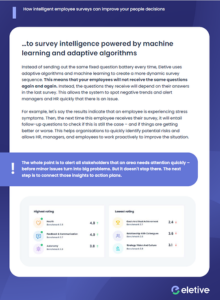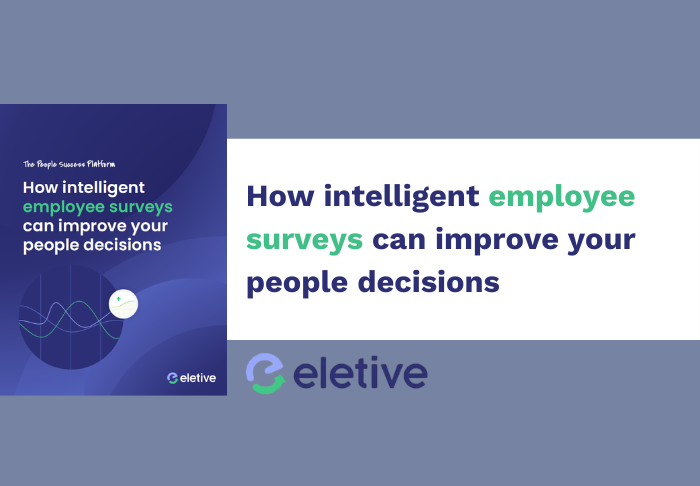
Over the past decade, a significant shift has taken place in how companies work with employee engagement.
From no surveys to yearly surveys, via pulse surveys, to intelligent employee engagement surveys powered by adaptive algorithms, machine learning and AI.
In this guide:
- From Annual to Intelligent Surveys: Employee surveys have evolved from yearly questionnaires to AI-driven, adaptive surveys that provide real-time insights.
- Personalised & Dynamic Questions: Machine learning adjusts survey questions based on previous responses, preventing fatigue and improving accuracy.
- Actionable Insights for Engagement: Surveys connect data to suggested actions, helping managers and employees proactively address workplace issues.
Get your free Employee Surveys Guide
How intelligent employee surveys can improve your people decisions
Simply complete the form below to get your free copy now!
"*" indicates required fields


